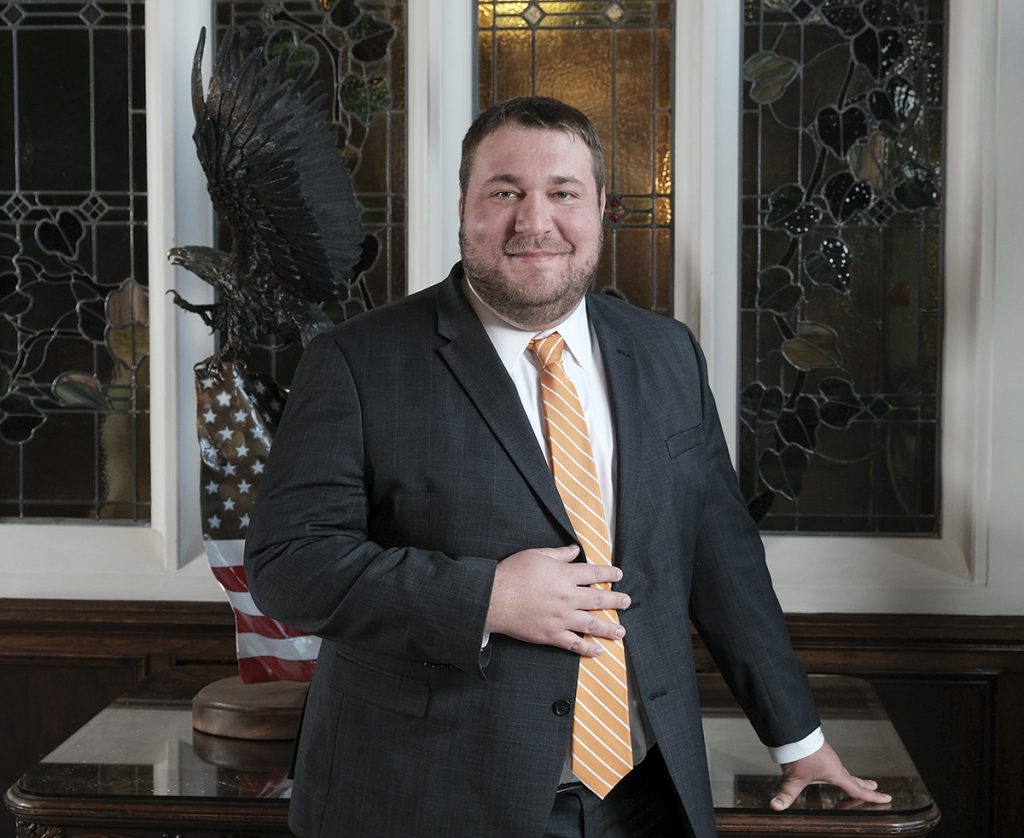Subscriber Benefit
As a subscriber you can listen to articles at work, in the car, or while you work out. Subscribe NowJohn Higgins’ early career in law has been diverse and successful, sparked by the same entrepreneurial spirit that spawned patented inventions and the founding of a company before starting law school. Now focusing largely on construction matters, Higgins had been an attorney with the Indiana Supreme Court Disciplinary Commission before transitioning to private practice. Higgins gives back in multiple ways, and you may have seen him as a frequent speaker and continuing legal education presenter.
Tell us about the sports equipment company you founded before you pursued a career in law.
I caught an entrepreneurial bug during my first year of undergrad at Wabash and set up a paintball company. High-end paintball guns (they call them “markers”) operate using circuit boards and computers. Paintball loading systems function in the same way. I had an idea to improve a paintball marker’s rate of fire by linking these various electronic systems. I am not an engineer, but I was able to put together a team of the right people to bring the products to market. The company at first concentrated on these specialty circuit boards. Over time, the company shifted focus and began manufacturing accessories for the sport, including protective gear, luggage, footwear, cleaning tools and lubricants. The company was started on a shoestring, college student budget but has grown over the past 15 years into one of the larger manufacturers in the industry, particularly for original equipment manufacturer products. I sold my interest in the company a few years back, and it now operates out of Orlando. The challenges of starting and building a company drove me to law school. Everything an entrepreneur does is influenced by lawyers and the law. The law shapes business, so I wanted to learn the law.
How does your prior work with the disciplinary commission inform your practice today?
The commission serves the vital (and often thankless) role to ensure that everyone plays by the same rules. One of those rules is candor. Our judicial system grinds to a halt when clients, opposing counsel and the court are unable to trust the word of attorneys. My work with the commission impressed upon me the importance of honesty in the practice. Not only does an attorney’s reputation depend on it, but the judicial system can’t function without it.
What advice do you have for young attorneys who would like to present CLEs as you frequently do?
First, develop expertise in a legal area that is of interest to attorneys. Second, volunteer to speak. Presenting CLEs has been a great networking and business opportunity for me. It is not uncommon for other attorneys to reach out for guidance or with referrals just because they saw you speak at a CLE. Another great networking opportunity is to present at client or industry seminars. Speaking, whether at CLEs or trade events, can quickly build a young attorney’s practice.
If you could change one law in Indiana, what would that be?
Indiana’s Home Improvement Contract Act (“HICA”) is a consumer protection law for homeowners who have been taken advantage of by contractors. The law requires home improvement contracts to contain certain boilerplate language. I see more and more instances of that statute being weaponized against reputable contractors who are trying to collect for legitimate work — all because they omitted inconsequential boilerplate language from their contract. Contractors are not attorneys. They should be able to collect for the work they do. HICA should be limited to protect against actual real-life fraud, not typos made by contractors.
What do you most like to do when you have free time?
Spending time with my wife, 3-year-old son, dogs Sam, Hank and Bernie, and my son’s fish Fred. I also used to be an avid woodworker but moved houses a few years ago and lost my woodworking shop in the process. I hope to build a new shop soon.
What do you gain from your bar association involvement?
Bar associations are a great way for attorneys to network with other attorneys, expand their legal practice and even earn CLE. Networking pays dividends.
Who is someone who mentored you, and what did you learn from them?
I have been fortunate to have many mentors at Katz Korin Cunningham and at the disciplinary commission. One of my earliest mentors at the commission was now-retired attorney Dennis McKinney. Dennis taught me the importance of thorough preparation and a mastery of procedural and evidentiary rules. Offer Korin has been a trustworthy mentor in private practice and constantly emphasized that if you put the needs of clients first, success will follow. As a shareholder at Katz Korin Cunningham, I now try to mentor as many young attorneys as possible.
Where do you see yourself professionally in another 10 years?
Hopefully doing what I love, which probably means I’ll be here at Katz Korin Cunningham, just with an additional decade of experience.
If you weren’t a lawyer, what do you imagine you might be doing?
Owning my own business, and hopefully one that involves dogs.
What advice would you give your younger self?
Keep at it!•
Read more Leadership in Law profiles.
Please enable JavaScript to view this content.

